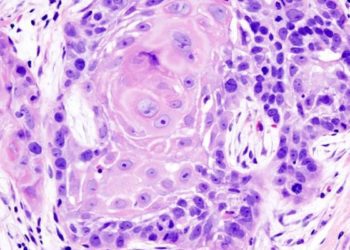Vitamin C supplementation in pregnancy improves respiratory function in children of smoking mothers at 5 years of age
1. In a randomized clinical trial, vitamin C supplementation in pregnancy improved measures of pulmonary function tests at 5 years of age in children born to smoking mothers.
2. Vitamin C supplementation in pregnancy was associated with decreased occurrences of wheezing in children at 5 years of age and had greater benefits when started earlier in pregnancy (<18 weeks gestation).
Evidence Rating Level: 1 (Excellent)
Study Rundown: In utero smoke exposure has been shown to affect fetal lung development, airway function, and risk of wheezing and asthma in childhood. Despite anti-smoking efforts, many individuals continue to smoke during pregnancy. Interestingly, some data provide evidence that vitamin C supplementation in pregnant smokers improves infant pulmonary function test (PFT) measures up to 12 months of age, but no studies have studied potential benefits in the preschool age group. In this study, the same authors reconsented participants at 5 years of age (n=213), to assess differences in PFT parameters and respiratory questionnaires in the placebo group and the group treated with maternal vitamin C. They found that those born to mothers treated with vitamin C during pregnancy had better pulmonary function at 5-6 years of age. Additionally, the vitamin C supplementation group had fewer wheezing episodes in the preschool years, and a greater benefit was seen when Vitamin C supplementation was started earlier in pregnancy. One limitation of this design is the omission of non-smoking groups. Therefore, it remains unclear if maternal vitamin C supplementation positively benefits childhood pulmonary function regardless of maternal smoking status. Overall, this study provides evidence that maternal vitamin C supplementation improves offspring’s pulmonary function and reduces the frequency of wheezing during preschool age. However, additional studies are required to validate these findings in external cohorts before incorporating supplementation into routine clinical practice.
Click here to read the article in JAMA Pediatrics
Relevant Reading: Vitamin C supplementation for pregnant smoking women and pulmonary function in their newborn infants: a randomized clinical trial
In-Depth [randomized controlled trial]: Using a double-blind placebo-controlled design, this study reconsented participants from the original Vitamin C to Decrease the Effects of Smoking in Pregnancy (VCSIP) trial that enrolled women >15 years old with a singleton gestation between 13-22 gestational weeks who were current smokers (≥1 cigarette in the last week). Participants were randomized to two groups: (1) the placebo group or (2) the treatment group taking 500 mg/day of vitamin C between December 2012 and June 2015. Fasting plasma ascorbic acid levels were measured in mid and late gestation at follow-up appointments and were higher in the vitamin C group, thus confirming general adherence. This follow-up study reconsented participants with 213 children of 251 pregnant smokers with a follow-up period up to the child’s sixth birthday, with data collection completed in December 2021. Measurements and outcomes included pulmonary function tests (PFTs), and respiratory questionnaires to assess the occurrence of wheezing. Of the spirometry performed, the vitamin C group had greater FEF25-75 (p<0.001), FEF50 (p<0.001), FEF75 (p<0.001), FEV1 (p<0.02), and metrics correlated with airway growth (FEF25-75 to FVC ratio, p<0.001). The measure of FVC did not differ between groups. Children from women treated with vitamin C had a significantly lower frequency of wheezing between the fourth and sixth birthday (OR 0.41, 95% CI 0.23-0.74, p=0.003). In addition, the effect of vitamin C on wheezing was associated with gestational age, with mothers receiving vitamin C before 18 weeks of gestation demonstrating the largest benefit (OR 0.22, 95% CI 0.09-0.054, p=0.001) in a sub-analysis comparing groups treated before and after 18 weeks of gestation.
Image: PD
©2022 2 Minute Medicine, Inc. All rights reserved. No works may be reproduced without expressed written consent from 2 Minute Medicine, Inc. Inquire about licensing here. No article should be construed as medical advice and is not intended as such by the authors or by 2 Minute Medicine, Inc.








